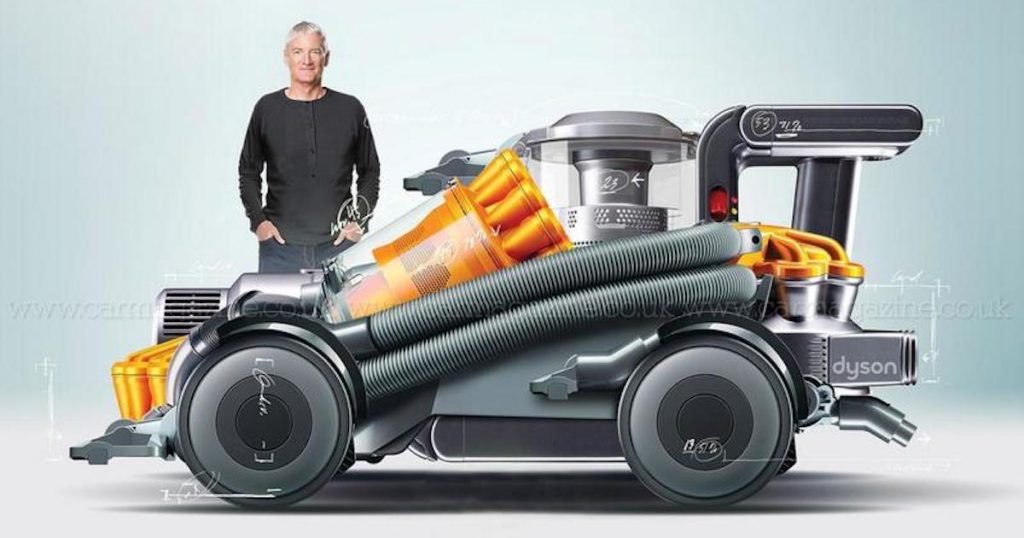British electronics company Dyson announced last year that it is building its first car manufacturing plant in Singapore, which is slated for completion in 2020.
The two-storey facility is part of a £2.5 billion (~S$4.3 billion) global investment in new technology, in which it is focusing on manufacturing and assembly.
Previous reports revealed that Dyson plans to roll out a range of EVs, including a high-end model as well as two less expensive vehicles designed for the mass market.
However, Dyson declared yesterday that it’s scrapping the electric car project.
In an e-mail to employees, founder and CEO James Dyson said its engineers had developed a “fantastic electric car” but it could not hit the roads because it was not “commercially viable”.
He added that he has been trying hard to find a buyer for the project but has been unsuccessful so far.
Dyson said that it’s “not the first project which has changed direction”, and confirmed that it’s closing its electric car facilities in both United Kingdom and Singapore.
In the UK, about 500 people were employed to work on this project. It’s not clear how many were hired in Singapore, but Dyson has started looking for roles like automotive design engineers and free-trade agreement specialists for the proposed plant since May.
According to Dyson, about 20 people in Singapore have been affected by the closure of the automotive division.
It is currently working on finding alternative roles within the firm for the affected staff, and assures that there are sufficient vacancies to integrate them into its core home business.
With the closure of this automotive project, Dyson said that the intended £2.5 billion (~S$4.3 billion) would now be channelled towards developing new technology.
He also hopes to grow The Dyson Institute of Engineering and Technology to groom its own class of engineers. The firm previously shared that it is considering Singapore as one of the locations for the site of its first university outside of the UK.
The funding will also be used to fuel business expansion in Singapore as well as other global locations.
“We will concentrate on the formidable task of manufacturing solid state batteries and other fundamental technologies which we have identified: sensing technologies, vision systems, robotics, machine learning, and AI offer us significant opportunities which we must grab with both hands,” he said.
“In summary, our investment appetite is undiminished and we will continue to deepen our roots in both the UK and Singapore.”
Featured Image Credit: CarMagazine.co.uk
